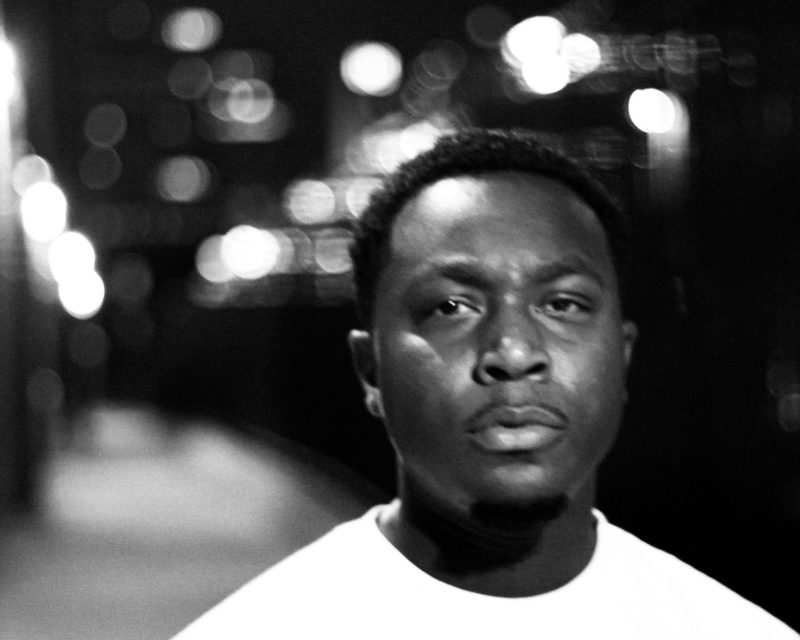Since Tim Gent is preparing to roll out a string of singles, his first release of new music in a couple of years, it’s a good time to revisit his catalog and take in how his sound and sensibilities, his verbal and lyrical style, his posture, tone and attitude, have changed over a decade of self-directed yet highly collaborative music-making. Here are four phases of the evolution of Tim Gent.
Gent was still living in Clarksville, where he grew up in a military family, when he dropped his head-turning, 2015 mixtape, Clarksville Nights. It felt like he was trying to prove he could do a little bit of everything—lock into a muscular flow over dirty south production, drawl just behind the beat of a banger, get a little sly with his flow over a jazzy instrumental—over the course of 16 tracks. Amidst the youthful impetuousness, it was plenty clear that he was dedicated to sharpening his thinking and technique.
“It wasn’t, like, desperate,” Gent reflects from the couch of the West Nashville condo he shares with his fiancé, and fellow artist, Jamiah, “but I was laser focused on attempting to catapult my career forward. I knew that my son was about to be born and I was working at a call center. I would sit on the floor in the room that I grew up in as a kid, and I just made this mixtape. A less mature version of myself was thinking, ‘This has got to be the best thing I ever did.’ And it was fruitful. It was extremely fruitful. It took my situation to another level completely, but not quite the way I saw it or envisioned it.”
By 2018, Gent was rooming with atmospheric R&B voice Bryant Taylorr in Nashville, and hanging out with other skilled singers who specialized in pop and R&B, Jamiah included. What he absorbed from them, and brought to the surface of his own writing, was an approach to rapping that was pensive, smooth and melodic, and sometimes gave way to actual singing during the hooks of his Life Away From Home mixtape. (It was during this period that I first interviewed him for NPR Music.)
Gent revealed more of himself by zooming in on his 2020 project, In Every Fall, and delving deeper into his state of mind. It was the subdued, but supple work of an artist bearing up beneath significant burdens and responsibilities, and feeling the threats to Black Americans’ safety and survival in a profoundly intimate way.
“I feel like that tape expresses a melancholy era of my life,” he says. “My younger brothers were getting into some trouble. My mom’s home had been shot up. Policemen raided my mom’s crib. I was dealing with a lot of things with my family and a lot of personal things and balancing living in the city and spending time with my son and learning how to just manage relationships. That project was me expressing that, but also having that ‘catch height in every fall’ mantra attached to it.”
Also in 2020, Gent landed a publishing deal with Prescription Songs, a landmark accomplishment for a Nashville-based hip-hop artist. He’d been receptive to collaboration since his Clarksville days, but when publishing company reps began booking co-writing sessions for him, he ventured into a whole new world of teaming up with other pros, including fellow Prescription signee Taylorr, to work on shaping taut hooks for television shows, movies, ads and other artists. When Gent was invited to attend a writing camp hosted by Issa Rae, he wound up helping capture the swaggering, club-friendly heat of Memphis-meets-Miami rap for the soundtrack of the streaming comedy series that Rap Sh!t that Rae created.
“For that specific writing camp,” Gent explains, “they brought in producers, artists, songwriters, instrumentalists from all over the country, big producers, big artists, all the way down to people that are just starting out. There were five, maybe six studios set up in this big mansion-type house. And the music supervisors pretty much gave us scenes that were going to be in the TV show. They gave us characters that were going to be in the TV show. They gave us scenarios, like how somebody is feeling, and wanted us to just create with that information. And I feel like my strongest ability in [that setting] is lyrics and cadences and direction. My goal always is to work as quickly as possible, because it’s like a shark tank, when you’re in those camps; there’s so many dope artists, so many dope writers, so many dope ideas. And you don’t want to be put on the back burner for throwing your idea late. I also like to piece things together and pull in another artist or write verses, help critique the way a flow is done. I almost turn into somewhat of a composer, not like I’m writing sheet music or anything like that. But I’m just placing things and producing, if you will. I always work to just make a lasting impression in the room.”

